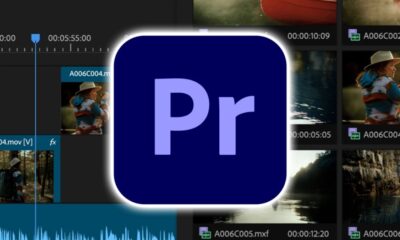Real Estate
Matthew Baker’s Tips for Starting a Successful Real Estate Career in 2025

Starting a real estate career requires more than just passing a licensing exam. The industry has changed drastically, shaped by technology, shifting demographics, and changing consumer expectations. New agents must be adaptable, learning not only the legal and procedural aspects of real estate but also how to market themselves, generate leads, and manage client relationships effectively.
As Matthew Baker notes, success often hinges on a combination of soft skills, digital fluency, and a strong personal brand. Partnering with the right brokerage, staying informed about market trends, and building a reliable support system are equally crucial. While the path can be challenging, the rewards—both financial and personal—make it a worthwhile pursuit for those willing to invest the time and energy.
The Real Estate Industry in 2025
The real estate landscape is shaped by continued advancements in technology, with virtual showings, AI-driven tools, and digital contracts becoming everyday parts of the job. These changes have streamlined operations and raised client expectations for speed and transparency. Agents now rely on mobile apps to track leads, automate follow-ups, and manage showings efficiently.
Remote work has altered where people want to live, pushing demand in suburban and rural areas that previously saw slower growth. As buyers and sellers adjust to shifting priorities, agents must stay informed about local trends and national movements that affect pricing and inventory. Areas near nature or with flexible zoning have become more enticing, adding nuances to market dynamics.
Getting Licensed
To start a real estate career, the first step is meeting your state’s licensing requirements, which usually include completing pre-licensing education, passing an exam, and submitting an application. Some states also mandate background checks and fingerprinting, so it’s important to check with your state’s real estate commission. Choosing a reputable school or online program can also make a difference in how well you absorb the material.
Costs can vary widely, with some new agents spending over $1,000 on education, exam fees, and startup expenses. In states like California or New York, the process may take several months, while in others, it might be completed in a matter of weeks. Planning ahead can help avoid delays and reduce stress during the transition into the industry.
Finding the Right Brokerage and Support
Choosing a brokerage is more than just picking a name—it’s about finding the right setting to learn and grow. New agents benefit most from brokerages that offer mentorship, hands-on training, and access to marketing tools. Some companies prioritize ongoing education, while others focus on independence and flexibility. Culture fit can also influence how supported you feel as a newcomer.
Virtual brokerages are becoming more common, offering lower fees and cloud-based support. Traditional firms, on the other hand, may provide in-person guidance and community connections that are valuable during the early stages of your career. It’s worth taking the time to speak with multiple offices and ask about how they support new agents in real-world scenarios. Agents often rotate through several brokerages before finding the one that aligns with their goals and values.
Building Skills and Market Knowledge
Success in real estate depends heavily on soft skills like active listening, time management, and the ability to communicate clearly under pressure. Deals often hinge on how well an agent can interpret a client’s needs and respond effectively. These aren’t just nice-to-have abilities—they shape every client interaction.
Understanding local inventory, pricing trends, and neighborhood dynamics gives agents an edge. Tools like MLS platforms, market reports, and buyer persona data can help sharpen this knowledge. Some agents choose to go beyond the basics by taking short courses in negotiation or digital marketing, which can lead to more confident client interactions and better outcomes. Attending open houses, even as a guest, can also offer insights into how seasoned agents operate.
Setting Up Your Business and Brand
Building a strong presence starts with defining your identity as an agent. This includes choosing a memorable business name, designing a logo, and devising an online footprint through social media and a personal website. Clients today often search online first, so visibility and clarity matter more than ever. Agents who post market updates or client success stories often build trust faster.
Budgeting is also critical early on. Without regular income at the start, you’ll need to plan for months with low or no commission. Some agents use spreadsheets or real estate-specific accounting apps to track expenses and manage marketing costs, allowing them to stay organized even during busy seasons. A dedicated business account can also help separate personal and professional spending.
Generating Leads and Managing Clients
Lead generation is the engine of a real estate business. Networking at community events, staying active on platforms like Instagram or LinkedIn, and maintaining a well-organized CRM system can all contribute to a steady stream of prospects. Relationships built on trust tend to convert better than cold leads. Hosting educational workshops or collaborating with local businesses can also widen your reach.
Once clients are on board, communication becomes the top priority. Prompt responses, setting clear expectations, and following up after closings can turn a one-time transaction into long-term loyalty. Many top agents attribute their repeat business to how well they handled the details during the first deal. A handwritten thank-you note or check-in call months later can leave a lasting impression.
Disclaimer: This is a sponsored piece of content. Time Bulletin journalists or editorial staff were not involved in the production or writing of this content.
-

 Business2 weeks ago
Business2 weeks agoCorporate Social Responsibility in Action: Amerilodge’s Support of Health and Education Causes
-

 Tech3 weeks ago
Tech3 weeks agoAdobe Releases New AI-powered Video Editing Tools for Premiere and After Effects with Significant Motion Design Updates
-

 Business4 weeks ago
Business4 weeks agoSpartan Capital Publishes 2026 Economic Outlook, Highlighting Volatility, Resilience, and Emerging Opportunities
-

 Tech4 weeks ago
Tech4 weeks agoGoogle Introduces New Updates to Its Veo AI Video Generation Tool
-

 Health3 weeks ago
Health3 weeks agoFinally, an Ayurvedic Sunscreen Parents Have Been Waiting For; ShuShu Babies Gentle Sun-Care Solution for Children
-

 Business2 weeks ago
Business2 weeks agoWhere There Is a Will, There Is a Way: Hayson Tasher and the New Year, New Me Mindset in Security Entrepreneurship
-

 Business4 weeks ago
Business4 weeks agoHow Black Banx Will Power the Next Era of Financial Inclusion
-

 Health4 weeks ago
Health4 weeks agoApex Health Co. Brings Healthcare Into the Digital Age
























